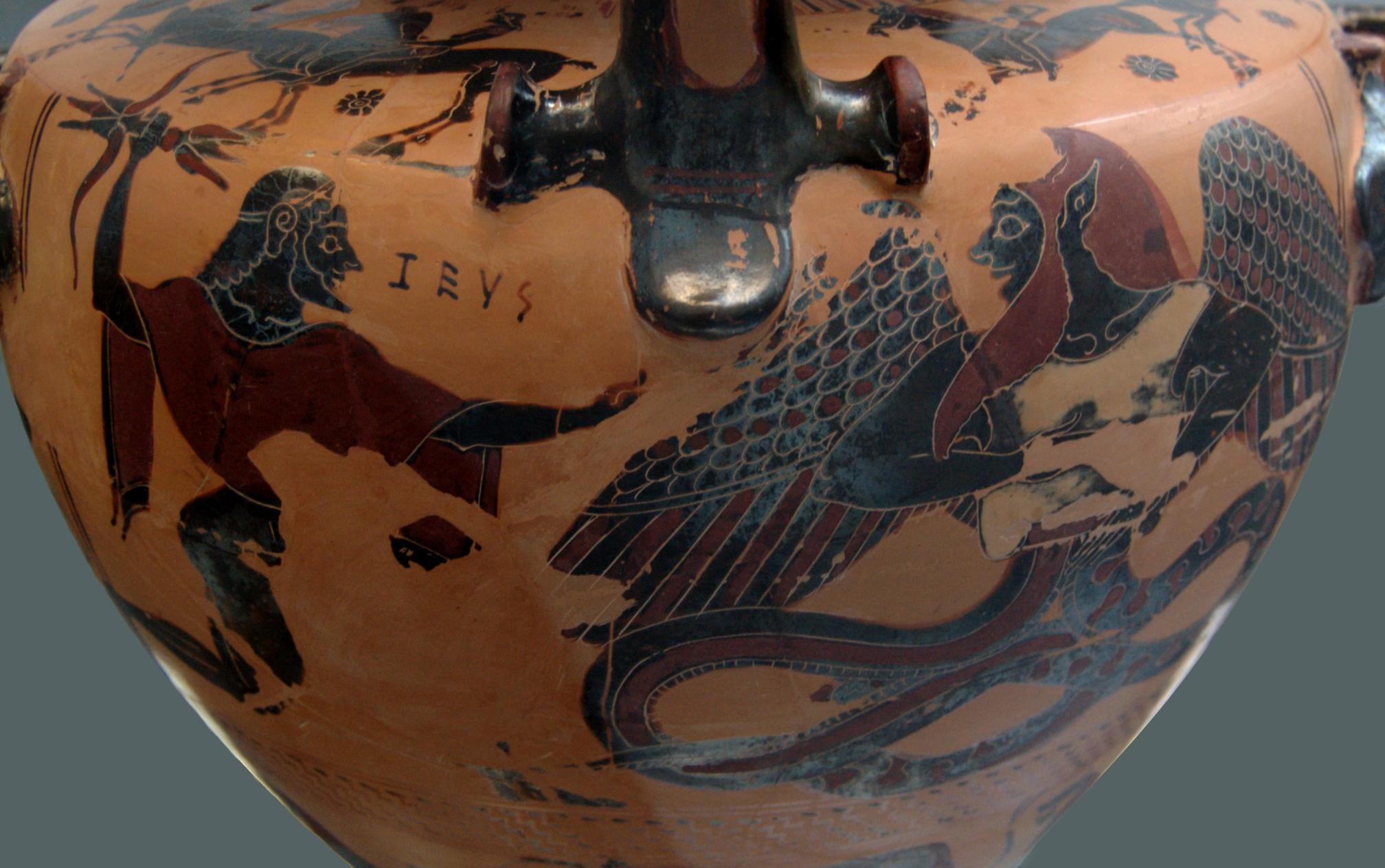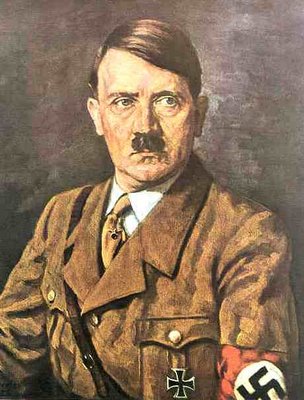Or:
A lesson for anti-Nazi whites
Dear Chechar:
I have been reading the articles related to the anniversary of Hitler that have been posted on CC [Counter-Currents] and elsewhere, and they made me think about my critical, albeit open, attitude with respect to Hitler. I like Johnson’s article (“The Burden…”) of 2011.
In this time of defeat, this interregnum as you put it somewhere, in this night we all suffer, it is not prudent nor wise the throwing from our ranks the slightest criticism of the Nazi period (we cannot give weapons to the enemy). Moreover, it is the only relevant event of our people in the last thousands of years, I would say.
Certainly this anniversary, the articles, but also your words have made me rethink this whole period. In this period the Aryan people is identified and recognized for the first time in the history of the peoples. For the first time our people became conscious of itself, about its origin and its nature. Since the rise of our people (that primitive nucleus) six or seven thousand years ago, there was nothing like it. It was a dawn, a new dawn. They were sublime moments.
This “birth” has to do with the emergence of Indo-European studies, and studies of evolution and genetics of that time. They spread new knowledge about our bio-cultural being, about our race, and our languages and cultures. It was a recognition. It was like looking for the first time in a mirror. We were there in those texts: in the hymns of the Rig Veda, in the Iliad, the Aeneid, in the Edda, the Mabinogion… It was us, our blood, our genius, our race, which had generated those texts, those cultures, those worlds.
The swastika, our banner, was not only raised against liberalism and communism… Just today we begin to understand the greatness and scope of its mission, and our mission. To situate it accurately we can make ours these words of Saint-Loup (the first aphorism of Quotations):
[Hitler était] l’homme qui avait jeté au monde ce prodigieux défi : attaquer en même temps le capitalisme anglo-saxon, le bolchevisme rouge, le racisme juif, la franc-maçonnerie internationale, l’Eglise catholique, le paupérisme et les iniquités sociales, le traité de Versailles, le colonialisme, la pagaille française et la Home Fleet.
[Hitler was] the man who had thrown to the world this extraordinary challenge: to attack at the same time Anglo-Saxon capitalism, Red Bolshevism, Jewish racism, international Freemasonry, the Catholic Church, pauperism and social iniquities, the Treaty of Versailles, colonialism, the French mess, and the Home Fleet.
And the list is not complete.
It was not just Hitler, but Germany as a whole: the entire German people. It was a collective “enterprise.”
Born armed, like Athena, the German community, the first Aryan community to wake up, or being reborn. And it does it to fight those who have sought her harm; against an entire counter-cultural environment which negates her being. Spiritually alienated she has to fight against the Jewish-messianic delusion, the “Christian millennium.” And it was not the only Jewish monster that had to face this newborn Aryan nation: communism also thrived, ravaging the population, and others. The Jewish hydra had multiplied, had branched, had too many faces, too many heads.
It seems that we have had but one enemy along the history, the Semitic peoples and their speeches (Jews, Judeo-Messianics, and Muslims). They dominate us spiritually. It’s the multiple alienation we suffer at the hands of Semites or Semitic ideologies (religious, political, economic, anthropological, sociological, psychological…).
Our enemy possess us one way or the other. The frightening Jewish hydra. Typhon. Evil. Our evil.
Was it an awakening, a premature birth? Too young was this community to face this millenary Monster. As a young Hero he failed in his first attempt to defeat it. Too old and cunning such monstrosity. He gobbled up the boy, and the young Aryan community, in a few years.
It was the first attempt, nothing more: the first real combat. Until then we had been suffering its impositions and strategies without even realizing that we were being attacked. They had thousands of years depriving us of our things, denying our ancestral being, vituperating our ancestors, defiling our sacred places, dividing us, sowing discord among us. It should be noted the Judeo-Messianic dualism (Manichaeism) of their holy book in (OT and NT), but also in Marxism, or psychoanalysis. The spread of these ideologies is part of their domination strategy.
We are a young people, a young race. We lack experience. This interregnum must serve to strengthen us spiritually and culturally.
You say, in a comment on the Johnson article, that the “revisionism” of Hitler and the Nazi period is essential. I absolutely agree. The Nazi period as a whole (from birth until its fall) has to be reclaimed for several reasons. It is essential in our history, in the history of the Aryan peoples. This is our new birth, our first encounter with the ancient Enemy, and our first loss. Nothing more or less. This episode has to have absolute preeminence among us. It must occupy the highest place in our memory, in our thoughts, in our hearts.
We have to rescue the memory of this period and raise it to the top with pride. We must be proud of that period. We were beaten, but not defeated. We are still alive and active. If we do not defeat it in the next battle, we will win the next one. We will overcome them at last. I know that.
The birth of our people is conceived in the years before Hitler came to power. The Aryan consciousness of a whole people then saw the light, and received his “baptism” publicly. An entire people recognized itself. 1933 is the year of their birth, the first Aryan community recognized as such. Their loss occurs 1945. We are, therefore, on the 80th anniversary of their birth, the birth of the first Aryan nation, of the Aryan nation itself.
That period is a milestone unmatched in our short history. The first appearance of our people in History. Now we are a people: the Aryan nation.
Hitler symbolizes our first period, our first battle, and our first loss. His struggle was our struggle. His loss was our loss. But this defeat has not conquered us during our first open confrontation against evil, against our evil. We were defeated, so what? It was huge the thing against which they fought. Too many hydra tentacles. It could not be. Next time we overcome, or the next one. The war has just begun.
These anniversaries of Hitler and the birth of our people have been for me as a small renaissance too. Let’s say I see more light, I see clearer. I have a presentiment of the next battle (that there will be a next battle). And this time we will have a space from which to advance, a bulwark, a solid footing (the Aryan nation itself). We shall re-conquer our people. We have many great spiritual warriors, and well armed with knowledge and truth. In the end, we will win.
This is my spirit now. We’re already a people.
Chechar, I feel that I owed this letter (and all those I upset with my harsh words about Hitler and the Nazi period).
Regards,
Manu
(translated from Spanish)








 I guess it’s also a form of mental escapism and suppression of uncomfortable truths and traumatic historic memories. Feeling victimized isn’t a good feeling. That might be another reason why the official narrative is so successful and why there’s a total disconnect with our past and people even identify with the Allied occupants, thus all this talk about “liberation” or Germans watching Tarantino’s movies like Inglorious Basterds and cheering while Germans get slaughtered on screen.
I guess it’s also a form of mental escapism and suppression of uncomfortable truths and traumatic historic memories. Feeling victimized isn’t a good feeling. That might be another reason why the official narrative is so successful and why there’s a total disconnect with our past and people even identify with the Allied occupants, thus all this talk about “liberation” or Germans watching Tarantino’s movies like Inglorious Basterds and cheering while Germans get slaughtered on screen.